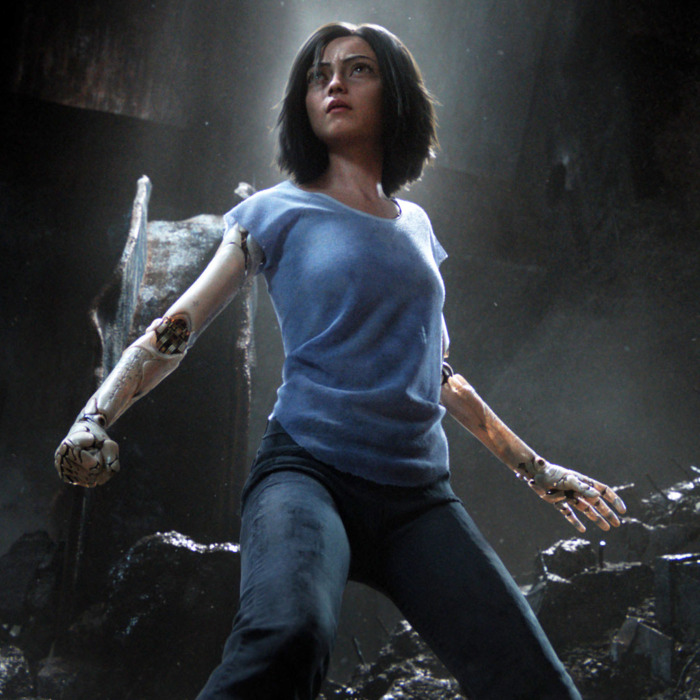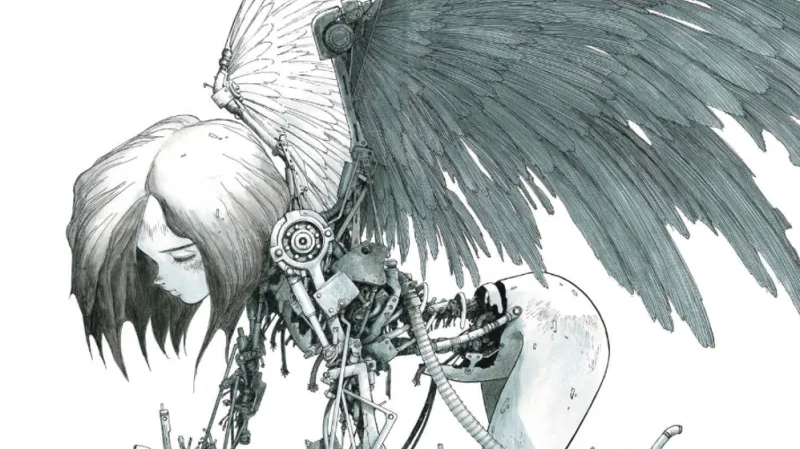On tonight’s episode of Star Trek: Discovery, Spock says: “The one variable we cannot predict is the future.”
I’d love to learn what non-future variables we can “predict.”
On tonight’s episode of Star Trek: Discovery, Spock says: “The one variable we cannot predict is the future.”
I’d love to learn what non-future variables we can “predict.”
So Ben Lockwood (Agent Liberty) on Supergirl, Jace Turner on The Gifted, and Orlin Dwyer (Cicada) on The Flash are all different versions of the same character arc, right?
In all three cases, someone starts out a decent-seeming guy who initially has no problem with superhumans (be they aliens, mutants, or metahumans, depending on the show); but after his family suffers as a result of a conflict between two different groups of superhumans, he devotes himself to a campaign against them, drawing no distinction between the good and the bad, thereby becoming a partly sympathetic albeit mostly infuriating antagonist.

From left to right: Lockwood, Turner, Dwyer
There are some differences, of course. For example: Lockwood becomes the leader of the anti-superhuman campaign; Turner is just one member among many; and Dwyer works (mostly) solo. Also: Lockwood’s story is a clear – indeed heavy-handed – metaphor for anti-immigrant hysteria and alt-right media manipulation in the Age of Trump; Turner is a vaguer symbol for various kinds of bigotry and police overreach; and Dwyer’s character doesn’t seem to be intended to make any particular political point.
I’d also say that of the three, Lockwood is the most interesting – partly because Sam Witwer is the most talented of the three actors involved, partly because he gets more clever dialogue. Lockwood’s a less sympathetic antagonist than Turner because he’s slimier and more self-aware, while Turner is sort of perpetually befuddled; but Witwer gives Lockwood a kind of goofy, smarmy charm that’s creepily engaging, while Turner is as bland as a slab of beef. But the most boring and single-note of all is Dwyer, who seems to be of the school of thought that Christian Bale’s Batman voice was too soft and subtle. (Flash is lucky to have the best villain of the three shows this year, but it ain’t Dwyer.)
In related news: on tonight’s Supergirl, Lex Luthor refers to a quotation from Epicurus as being 230 years old. Off by a factor of ten, dude! If you’re that sloppy with measurement, no wonder your superhero-killing devices keep failing.
(I also have a hard time making sense of Manchester Black’s motivations in this episode. What was up with that? SPOILER ALERT: I’ll say more in the comments section below.)
|
Many days passed before we could speak to the Golden One again. But then came the day when the sky turned white, as if the sun had burst and spread its flame in the air, and the fields lay still without breath, and the dust of the road was white in the glow. … But the Golden One stood alone at the hedge, waiting. …
And we said: “We have given you a name in our thoughts, Liberty 5-3000.” “What is our name?” they asked. “The Golden One.” – Ayn Rand, Anthem |
In despair I followed him into the Madidinou Fields, in an afternoon in the end of the dry season. … He turned away and went on working. …
I said, “Once I gave you a name in my heart. Do you want to know what it was?” He said nothing, did not look at me, and went on working. I left him there with his cutting knife and basket and walked away between the long-armed, contorted vines. Their large leaves were rust-colored in the dusty light. The wind blew dry and hard. – Ursula K. Le Guin, Always Coming Home |
Heh. In tonight’s episode of Discovery, if memory serves (no, that’s not the episode title; that’s last week’s episode title), there was one point at which Pike was sharing the bridge with seven women, one of them his superior officer (Cornwell, Burnham, Tilly, Nhan, Airiam, Owo, and Detmer). He seemed unfazed. He’s evidently made a bit of progress in what’s supposed to be just three years.
Or we can take Pike’s earlier attitude as something that never really happened, which is clearly how we’re supposed to take the no-female-captains rule in “Turnabout Intruder.” Sometimes retconning is the simplest solution.
I just got back from seeing Alita: Battle Angel, which I quite enjoyed, particularly for a) its beautifully realised cyberpunk cityscape, and b) the mo-cap performance of the lead.
The movie bills itself as being based simply on the original manga (Battle Angel Alita a.k.a. Battle Angel a.k.a. Gunnm) (which I haven’t read), but from what I understand it’s based at least as much on the 1993 anime adaptation (which I have seen – and so can you, below):
MILD SPOILERS BELOW:
The character of Chiren, for example, who has a very important role (though not precisely the same role) in both the anime and the live-action movie, is, I understand, completely absent from the original manga. Indeed, the movie follows the storyline of the anime extremely closely. The only major respects in which the movie’s plot deviates from that of the anime are the Motorball competition, the exploration of Alita/Gally’s past, and the introduction of Nova (all of which are, I gather, elements drawn from the manga). Even the repeated line about “an insignificant girl” is a nod to the anime’s closing theme song (which in other respects has little to do with the story – as is often the way with theme songs in anime).

One major improvement, for me, that the movie makes over the anime is in Alita/Gally herself. The frequently infantilised portrayal of heroines in anime, with their exaggeratedly squeaky voices and little-girl faces, tends to get on my nerves. The movie version avoids this (despite keeping the artificially gigantic eyes typical for anime heroines, which some viewers found off-putting, but which I thought worked fine here, as the character is a cyborg after all). Rosa Salazar’s strong, grounded performance, combined with masterful mo-cap and CGI work, carries the film.
Western film adaptations of manga and/or anime have sometimes been criticised for casting non-Asian actors to play originally Asian characters (as with 2017’s Ghost in the Shell). But that doesn’t seem to be as much of a worry here, as the main characters in the Battle Angel anime were not clearly Asian, and many were clearly non-Asian, particularly Ido, Chiren, and Vector. (It’s less clear whether or not Alita/Gally and Hugo/Yugo were intended to be seen as Asian in the anime.) Moreover, the original manga apparently depicts the action as taking place in a future North America (and not, e.g., Japan). (Still, you’d think at least a few more of the live-action film’s supporting cast would be Asians, yet offhand I recall only one or two. There are Asians in North America, y’know.)
As a feminist heroine the film’s Alita is a bit of a mix. Her defiance of male authority, even the well-meaning but somewhat suffocating authority of her father-figure Ido, is inspiring, but her willingness to sacrifice everything (including her literal heart) for the sake of her obviously less-than-worthy boyfriend Hugo is a bit disappointing. Still, love doth occasionally make idiots of us all.

The film’s treatment of class, which follows the anime (and, I presume, the manga), is a familiar one in science fiction: the privileged elite live in a floating city (with a strict closed-borders policy) high above the masses, who are relegated to a crappy and perilous existence below (recall, e.g., 2013’s Elysium) – though this theme is undercut a bit by how vibrant and exciting Alita finds the ground-bound city to be.
The most surprising feature of the movie for me was how short the closing credits were. Usually, for a movie this effects-heavy the credits go on forever, but these credits seemed to be over in a flash.
Admittedly, Alita: Battle Angel doesn’t really explore any issues that haven’t been explored onscreen a hundred times before; but it’s fun and visually striking. I hope it does well enough to merit a sequel, since as things stand the movie pretty clearly ends in mid-story.

While it’s not yet clear whether Black Lightning takes place in the same continuity as the other CW superhero shows, it definitely qualifies for the same drinking game.
| M | T | W | T | F | S | S |
|---|---|---|---|---|---|---|
| 1 | ||||||
| 2 | 3 | 4 | 5 | 6 | 7 | 8 |
| 9 | 10 | 11 | 12 | 13 | 14 | 15 |
| 16 | 17 | 18 | 19 | 20 | 21 | 22 |
| 23 | 24 | 25 | 26 | 27 | 28 | |